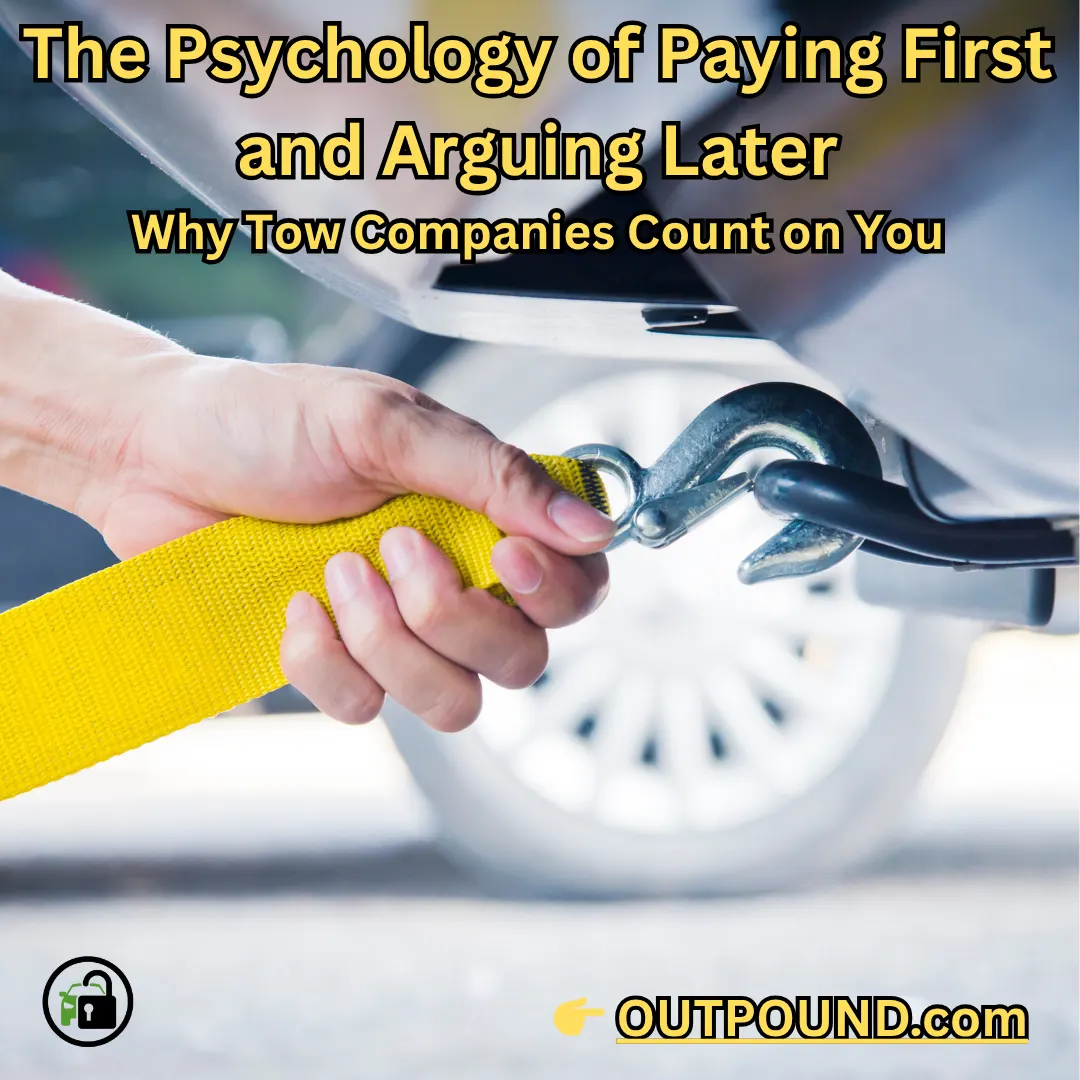Why Tow Companies Count on You

Tow companies don’t need to be brilliant, they just need to understand human behavior. And boy, do they. They know that when you walk into that sketchy impound office, face flushed with frustration, credit card in hand, you’re not there to negotiate. You just want your car back and your sanity intact. Welcome to the psychology of towing! A mind game where impatience, stress, and confusion make you their ideal customer.
The Panic Phase: “Just Tell Me What to Pay”
It starts the moment you realize your car’s gone. Your first thought isn’t, “I should calmly verify if this was a legal tow.” Nope—it’s, “WHERE IS MY CAR?!” The tow yard banks on that panic. They know you’ll make calls, show up angry, and demand answers, but not receipts, not citations, not justification. And when they say “$425 in fees,” your inner voice says, “That can’t be right.” But your louder, panicked voice says, “Just pay it and get out of here.” That’s the transaction they’re waiting for, the emotional surrender. Because once you pay, the fight becomes ten times harder. They’ve already won the mental game before you’ve even parked your borrowed ride.
The Confusion Tax
Tow companies thrive on complexity. Every fee sounds official: “administrative fee,” “gate fee,” “lot fee,” “storage fee,” “release fee,” and everyone’s favorite, the “after-hours fee.” Half of them are made up, but they sound legitimate enough to avoid questions. That’s by design.
In behavioral economics, this is called the confusion tax...when people pay more because the situation is too overwhelming to question. The paperwork is intentionally cluttered, the clerk is impatient, and the clock is ticking (literally, because storage fees increase daily). They’ve created a psychological pressure cooker where compliance feels like relief.
The Hope You’ll Give Up Principle
Even if you do decide to dispute the tow, you’ll face another psychological barrier: bureaucracy. You’ll be told to “file a claim,” “request an appeal,” or “contact city enforcement.” Translation: We dare you to keep caring after two weeks of phone tag.
Tow companies rely on fatigue. Every delay, every form, every unanswered email is part of the playbook. The goal? Make you stop. Studies on dispute behavior show that most people abandon claims worth less than $500, not because they’re wrong, but because it’s not worth the time. Tow companies know this. They’ve turned public frustration into predictable profit.
The “It’s Not Worth It” Trap
Here’s the real kicker: the industry knows that emotionally, you’ve moved on the minute you drive away. You might rant about it on Facebook or threaten small claims court, but most people never follow through. They rely on your exhaustion, your busy life, your sense of “whatever, I just want it over.” And cities love this cycle. They get their cut, the tow yard gets paid, and you get the honor of paying a “storage fee” for the privilege of being scammed politely.
Someone’s Always Winning
Towing isn’t just a legal system, it’s a psychological one. Every step, from the signage to the surly clerk, is engineered to make you feel powerless. The tow company doesn’t have to break laws when they can break your patience instead.
That’s where OUTPOUND.com flips the script. We don’t play by their emotional rules, we expose them. We help you pause, document, and push back before you hand over a dime. Because once you understand the game, you can stop playing it.
So, next time a tow yard clerk leans on the counter and says, “You can pay now or leave it another day, it’s your choice,” remember: that’s not a choice. That’s a hustle dressed up in legal language. Visit OUTPOUND.com before you hand them your wallet, and let’s see who’s really in control.

